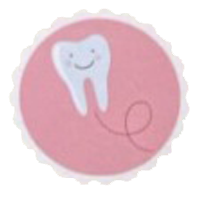Frequently Asked Questions With Our Oak Park Dental Team
FAQs
Should I Be Concerned About the Radiation From X-rays?
Radiation doses from dental radiographs are minimal, and all necessary precautions are taken. Dreamscapes Family Dentistry is equipped with state-of-the-art digital imaging radiographs with minimal exposure, and we use appropriate measures such as lead aprons and collars to ensure exposure is reduced. Without X-rays, it is nearly impossible to diagnose and treat dental conditions. We follow guidelines laid out by the American Dental Association for taking X-rays once a year.
What Causes Teeth to Discolor?
There are many causes of tooth discoloration. Some of the most common include the consumption of highly colored foods and drinks (berries, coffee, tea, red wine). Some medications, aging, smoking, and trauma can also cause teeth discoloration.
What Is the Difference Between OTC and In-Office Teeth Whitening?
Over-the-counter whitening products are not customized to your needs. With take-home whitening, the whitening process is tailored to your needs by your dentist, with custom-fitted trays for at-home treatments or just the right light intensity and duration in the dentist’s office.
What Is the Importance of Professional Dental Cleanings?
Routine teeth cleanings, also known as dental prophylaxis, are essential to maintaining a healthy smile. These cleanings remove plaque, tartar, and stains that can’t be removed by at-home brushing alone. They also help you avoid developing more serious issues like tooth decay and gum disease.
I’ve Lost a Tooth. What Are My Options for Replacing It?
There are several options available to replace your missing tooth. When you visit our office, our dentists will examine your mouth, discuss your oral health needs and smile goals with you, and review your treatment options. We will design a customized treatment plan to restore your tooth and your smile. Some of the tooth replacement options we may discuss include
- Dental implants
- Dental bridges
- Complete or partial dentures
What Is a Root Canal?
A root canal is a procedure performed when injury, infection, or decay reaches the inner tissues of the tooth. Our dentists will clean out the infected pulp tissue within your tooth roots, sterilize the canals, and then fill them with medicated material and seal the tooth to prevent future infection. While root canals have a reputation of being painful, advances in dentistry have made it possible to perform your treatment comfortably as well as effectively.
What Is Orthodontics?
Orthodontics is a field of dental specialty that focuses on diagnosing, preventing, and treating dental and facial irregularities, including misaligned teeth and jaws. An orthodontist is a dental specialist who has received two to three years of additional training following dental school in managing tooth movement and guiding facial development.
When Should My Child Receive Their First Orthodontic Screening?
The American Association of Orthodontists® recommends that children receive their initial orthodontic screening by age 7. At this age, several permanent teeth have erupted, and any developing problems will be easy to diagnose and treat.
Am I Too Old for Orthodontic Treatment?
No! While the majority of patients who receive orthodontic treatment are children or teenagers, more and more adults are seeking orthodontic treatment to improve their smiles and oral health. As long as your teeth and supporting structures are healthy, you can receive treatment.
What Is Periodontal Disease?
Periodontal disease, also known as gum disease, is an oral condition that affects the gums and supporting structures in your mouth. It begins as a bacterial infection of the gums and gradually progresses until it destroys your gums and bone structure. The milder stage of periodontal disease is known as gingivitis, while the more severe form of the disease is known as periodontitis. You should be checked for periodontal disease each time you visit our dentists.
What Causes Periodontal Disease?
Periodontal disease is caused by the harmful bacteria trapped in plaque. As plaque hardens into calculus (tartar), the disease becomes more established in your mouth. Gum attachments begin to separate from your teeth and create pockets that harbor these harmful bacteria. If gum disease is allowed to progress without treatment, the condition may become irreversible.
What Are the Symptoms of Periodontal Disease?
Symptoms of periodontal disease include:
- Red, swollen, or tender gums, or other pain in your mouth
- Bleeding while brushing, flossing, or eating hard foods
- Gums that are receding or pulling away from the teeth
- Loose or separating teeth
- Pus between your gums and teeth
- Sores in your mouth
- Persistent bad breath
- A change in the way your teeth fit together when you bite
- A change in the fit of dentures or other removable appliances
- Halitosis (bad breath)
What Do I Do if I Have Bad Breath?
Halitosis (bad breath) may be caused by any number of factors, including
- Morning time
- Poor oral hygiene
- Cavities
- Periodontal disease
- Poorly fitted appliances
- Dry mouth
- Tobacco products
- Medical conditions or illnesses
- Dehydration, hunger, or missed meals
- Certain foods
You can prevent bad breath by visiting our dentists regularly, staying hydrated, practicing good oral hygiene, using mouthrinses, and not using tobacco products. If your halitosis persists, we recommend that you consult a physician to determine if your bad breath is caused by a medical condition and receive appropriate treatment.
Still have questions? Call Dreamscapes Family Dentistry in Oak Park, MI, at (248) 543-8800, and we’ll be glad to help.







